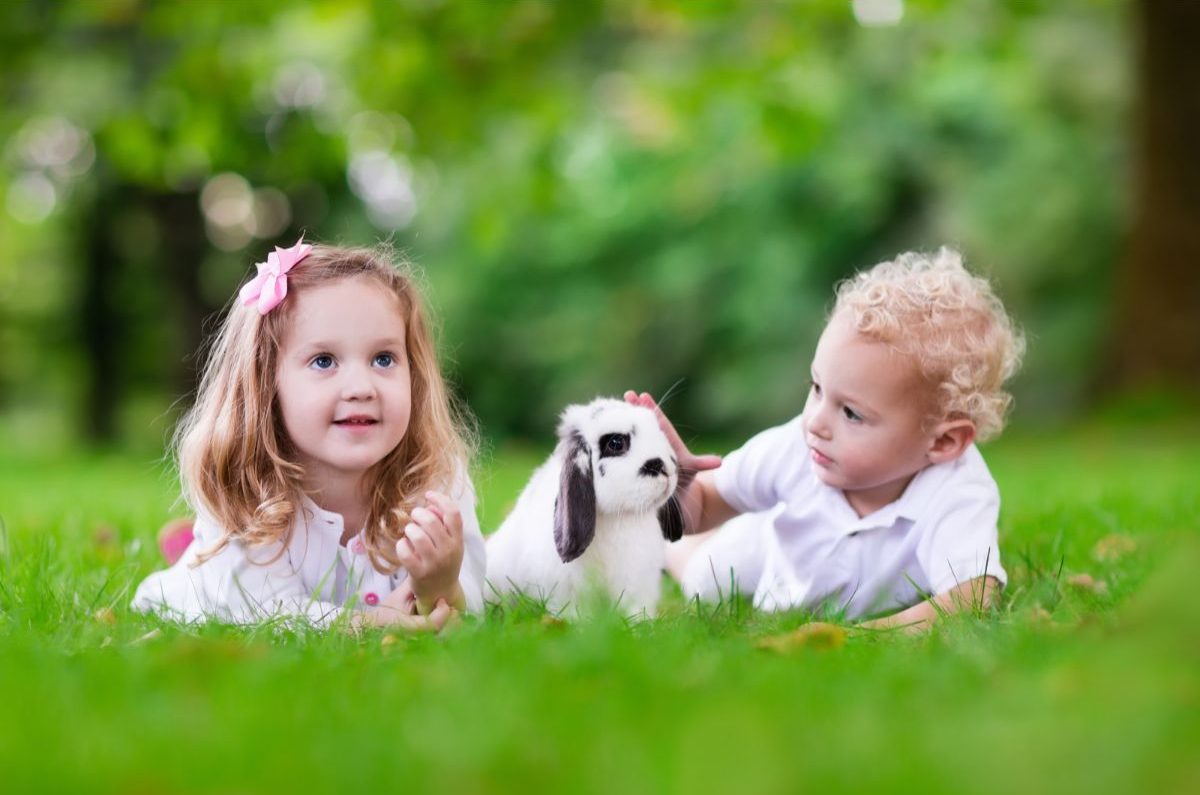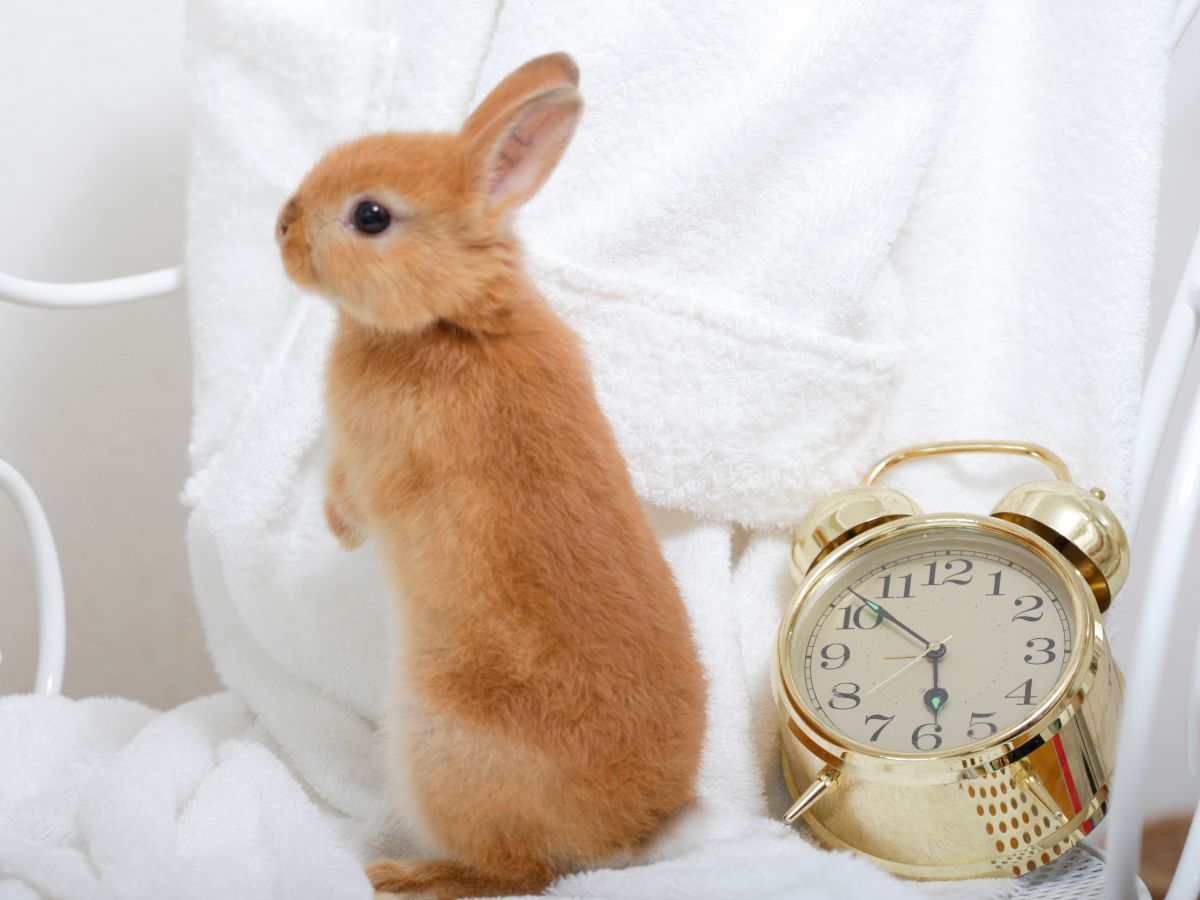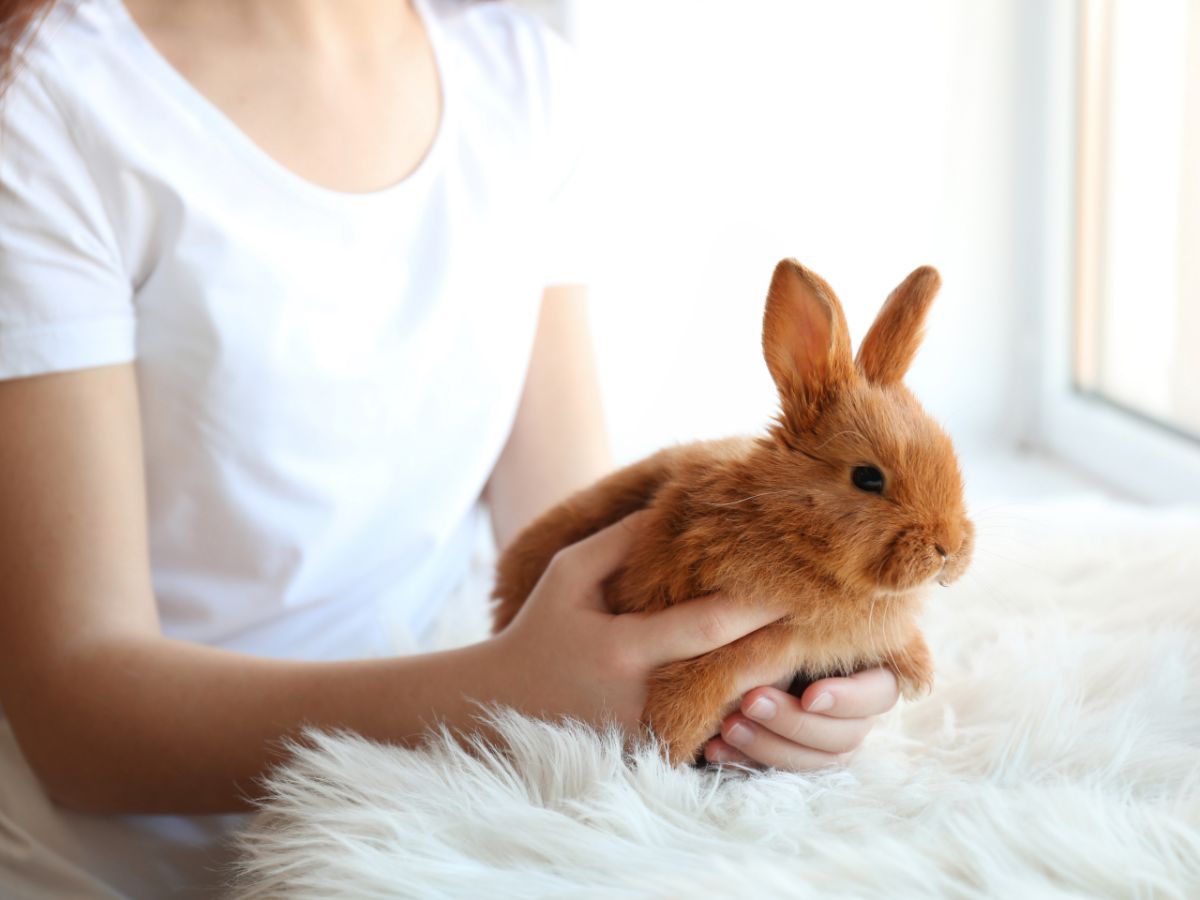At some stage in every parent’s journey, your kid will beg you for a pet, which is likely to be a rabbit. After all, they are so cute! With Easter bunnies and other cartoon bunnies, it’s no wonder you may be asked for a pet rabbit! But are rabbits good pets for kids?
Rabbits are sensitive and don’t enjoy being handled, so they are not ideal pets for young, active kids. Rabbits are high-maintenance pets that require specialized care. However, they can be fantastic pets for older kids who understand rabbits’ needs and responsibilities.
If you are contemplating getting a rabbit for your kid, this article will highlight the positives and negatives of having a pet rabbit for kids.
Contents
Are Rabbits Good Pets For Kids?
Due to their cuteness and small size, rabbits are often bought as starter pets for children. Unfortunately, many people fail to research proper rabbit care, and consequently, rabbits are often abandoned and left at shelters.
Owning a pet rabbit has many benefits and disadvantages, especially for children. Giving the pros and cons careful consideration will ensure that you make the right choice and provide a loving home should you decide to get a pet rabbit.
The Pros Of A Pet Rabbit For Kids
Rabbits are fascinating, underrated animals that can positively impact your child’s view of animals. Introducing a kid to rabbits can have many benefits, such as:
1. Rabbits Can Teach Your Child To Respect Animals
As prey animals, rabbits feel safe on the ground. Being picked up can trigger fears of being caught by predators and make them feel stressed. By explaining the rabbit’s fear to a child, you have a valuable opportunity to teach them about respect.
If your child can respect the rabbit’s wish to not be picked up, regardless of how much they want to pick them up and cuddle with them, they learn to get to know and love animals for who they are and not what they can do for us humans.
2. Rabbits Can Teach Your Child Patience And Empathy
Rabbits are cautious and may not want to be petted at first. It is important to gain their trust before they allow you into their space, which can take some time.
However, if your child has the patience, the bond that they can have is a rewarding experience!
3. Rabbits Love Routine
Rabbits are creatures of habit. They enjoy doing certain things at a certain time each day. If your child is ready to learn about routine, a rabbit can help them stay consistent and stick to a daily routine.
The Cons Of A Pet Rabbit For Kids
Unfortunately, rabbits have many qualities that make them unsuitable for kids. Some of the cons of a pet rabbit for kids include:
1. Rabbits Are Sensitive And Fragile
Rabbits have delicate bones and are sensitive to sudden movements and loud noises. As prey animals, it is a rabbit’s instinct to run from sudden movements.
Young children are active and enjoy running around, screaming in excitement, and occasionally throwing tantrums. All these normal child behaviors will stress a rabbit out and make them skittish.
2. Rabbits Do Not Enjoy Being Picked Up!
Most kids want a rabbit because they are cute, fluffy, and look cuddling, thinking they can hold and cuddle time. Unfortunately, most rabbits hate being picked up. If you sense that your child wants a pet to play dress-up with, a puppy will be a better choice.
3. Rabbits Are Expensive And Require Special Care
Rabbits are exotic pets that need veterinary care from a specialized vet, often more costly than regular vet appointments. Rabbits must be vaccinated, neutered, or spayed to prevent breeding.
4. Rabbits Have Delicate Digestive Tracts
Rabbits have incredibly sensitive stomachs, and many fruits, vegetables, and other foods are toxic to them. Some houseplants are toxic too, and should be kept out of reach.
To keep your rabbit healthy, they need to follow a specific diet consisting of hay, grass, healthy nuggets, and fresh greens. Good quality rabbit food can be expensive, and unfortunately, changes in their diet can be concerning. Rabbits’ digestive system is so sensitive when rabbits stop eating; they need to be rushed to the nearest vet urgently!

What Are The Best Child-Friendly Breeds Of Rabbits?
There are many breeds of rabbits, and some are more accepting of human interaction. Choosing the right breed of rabbit for your child will give the relationship a better chance at success.
The following breeds are more child-friendly than most others:
- Dutch rabbits – loving, calm, and laid-back bunnies that will tolerate more active kids
- Polish rabbits – one of the most affectionate breeds who don’t mind being picked up
- Harlequin rabbits – docile, love human interaction and enjoy being petted
- Mini lop rabbits – energetic and loves attention, but are small and fragile. Best for older children.
Additionally, your child’s personality should be considered, regardless of the type of rabbit you choose to get. Calm, gentle-natured, reserved children do better with rabbits than outgoing, active kids.
How To Prepare For Bringing Home A Pet Rabbit
Before you bring home a bunny, make sure you have everything the rabbit needs ready and set up. You will need the following things for a happy rabbit:
- Lots of hay! – oat hay, timothy hay, and teff grass are their staple food
- A hay rack and water bowl
- A variety of chew toys to keep them from chewing your cables and furniture
- A hutch, hide-out, or some form of “safe space” where they can go to be alone
- Tunnels, foraging mats, and other toys to provide enrichment
Conclusion
Ultimately, your child’s personality will be the deciding factor in choosing whether or not a pet rabbit is a suitable companion. While most kids are too active and loud for rabbits, the right breed of rabbit and a calm, understanding child can make a wonderful combination that will enrich the lives of your kid as well as that of the rabbit.




